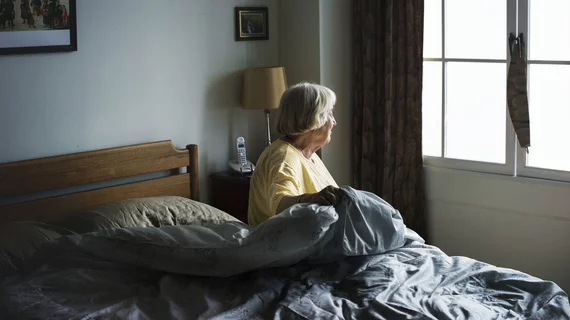Hospital readmissions high for heart patients hastily sent home from skilled nursing
Nearly a quarter of heart failure patients discharged after rehabbing in skilled-nursing facilities (SNFs) are bound to get readmitted to hospitals within 30 days of going home. And those whose stay at the SNF two days or fewer are up to four times more likely to be readmitted than those who stay longer.
That’s according to researchers at New York University whose findings are running in the April edition of the Journal of the American Medical Directors Association.
Lead author Himali Weerahandi, MD, MPH, and colleagues further found the highest readmission risk could be slashed in half by keeping patients in skilled nursing between one and two weeks instead of just a couple of days.
The authors arrived at their conclusions after reviewing Medicare data on more than 67,000 patients with heart failure who went to skilled nursing from acute care and were readmitted to the latter within a month.
Overall, they found, 24.2% of patients discharged from SNFs ended up back in the hospital within the 30-day window. They also found the highest rates of readmission generally corresponded with the shortest stays in skilled nursing.
Yet even patients who stayed in skilled nursing for one to two weeks versus one to two days had double the risk of readmission immediately following discharge from SNF to home compared with those who stayed still longer in the SNF.
In their discussion, Weerahandi and colleagues acknowledged that immediate readmissions after SNF discharge may reflect patient-level factors, as the researchers did not take into account the severity of each patient’s heart failure.
Nevertheless, they wrote, “the persistence of increased risk across multiple cohorts of patients suggests that the disruption in care continuity when a patient is transferred from SNF to home may be playing an important role.”
In a news release sent by NYU Langone Health, Leora Horwitz, MD, the study’s senior author, pointed out that discharge plans for heart failure patients tend to focus “almost exclusively” on the discharge from the hospital.
“[O]ur study suggests it’s critical to start focusing these plans on the transition home from a skilled nursing facility as well,” she said.
To this Weerahandi added that hospitals need to do better at tailoring care plans for heart failure patients prior to sending them outside the hospital.
“Part of the battle is patient education,” Weerahandi said. “Patients need reinforced and clear messaging about taking their medications, weighing themselves daily and other key steps to help prevent them from being readmitted to the hospital.”

